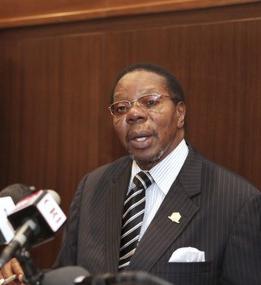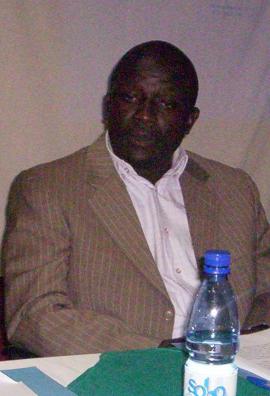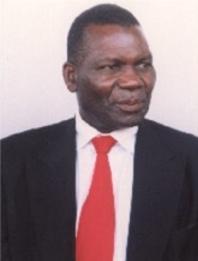|
Malawi Politics | Human rights | Society Malawi govt pressured by protests, donors
Yesterday, the long announced anti-government protests kicked off in Malawi's capital Lilongwe and in the northern town of Mzuzu. The main demand was for government to address high fuel prices and shortages, causing a large black fuel market in Malawi.
The violent response to the protests and the detention of human rights and trade union leaders only add to the widespread impression that Malawi is turning more repressive. Not only Malawian protesters are now putting pressure on government to respect human rights - also Malawi's main donors are presenting a united front. Malawi is among the world's most aid dependent nations. During the governance of President Mutharika - a former IMF official - aid levels from Western donors have steadily grown as Malawi has been seen to make progress regarding economic policies, the fight against corruption and in democracy and human rights issues. This trend however has now stopped, with Western donors now agreeing that Malawi is experiencing major setbacks regarding human rights. Two issues add to the violent response to the protests: more repressive media laws and the criminalisation of gay and lesbian sexual relations. Germany has taken a lead. Currently, euro 2.5 million of German budget aid for Malawi for 2010 are still held back and a further euro 5 million in budget aid for 2011 have been frozen. Deputy Development Minister Gudrun Kopp has just cancelled her planned trip to Malawi, quoting human rights setbacks. The frozen aid funds would only be released when "the democratisation process sees positive developments," stated Ms Kopp. Currently, she explained the cancellation of her visit, there was "a lack of willingness towards a constructive dialogue over different laws by the Malawian government," referring to anti-gay legislation and media regulations. The German move is p
"As partners and friends, we would like to recall that good governance and respect for human rights - including freedom of expression, observance of democratic principles, and freedom from discrimination - are the foundation upon which our partnership is built," the statement reads. The toughest message so far was given by the US aid agency MCC, which in January signed a record US$ 350 aid deal to renovate Malawi's energy sector, has decided to delay the release of these funds until clarifications were given about the new legislation. The MCC only releases its massive impacts to countries with high human rights standards. Meanwhile, the Malawian government is doing its utmost to withstand the pressure mounting from all sides. President Mutharika told protesters "not to take inspiration" from Egypt, as the situation in Malawi was not comparable. Justice Minister George Chaponda insisted "We are not ready to change the laws to satisfy donors." But others believe President Mutharika will soon have to bow into the massive pressure. Malawi's independent 'Capital FM' radio today reports donors are "closely monitoring the developments taking place in the country," and would be alienated by the harsh reactions to Monday's protests. Without donor support, President Mutharika will be faced with deteriorating social problems and a stagnating economy, causing even more protests. By staff writers © afrol News - Create an e-mail alert for Malawi news - Create an e-mail alert for Politics news - Create an e-mail alert for Human rights news - Create an e-mail alert for Society news
On the Afrol News front page now
|
front page
| news
| countries
| archive
| currencies
| news alerts login
| about afrol News
| contact
| advertise
| español
©
afrol News.
Reproducing or buying afrol News' articles.
You can contact us at mail@afrol.com










